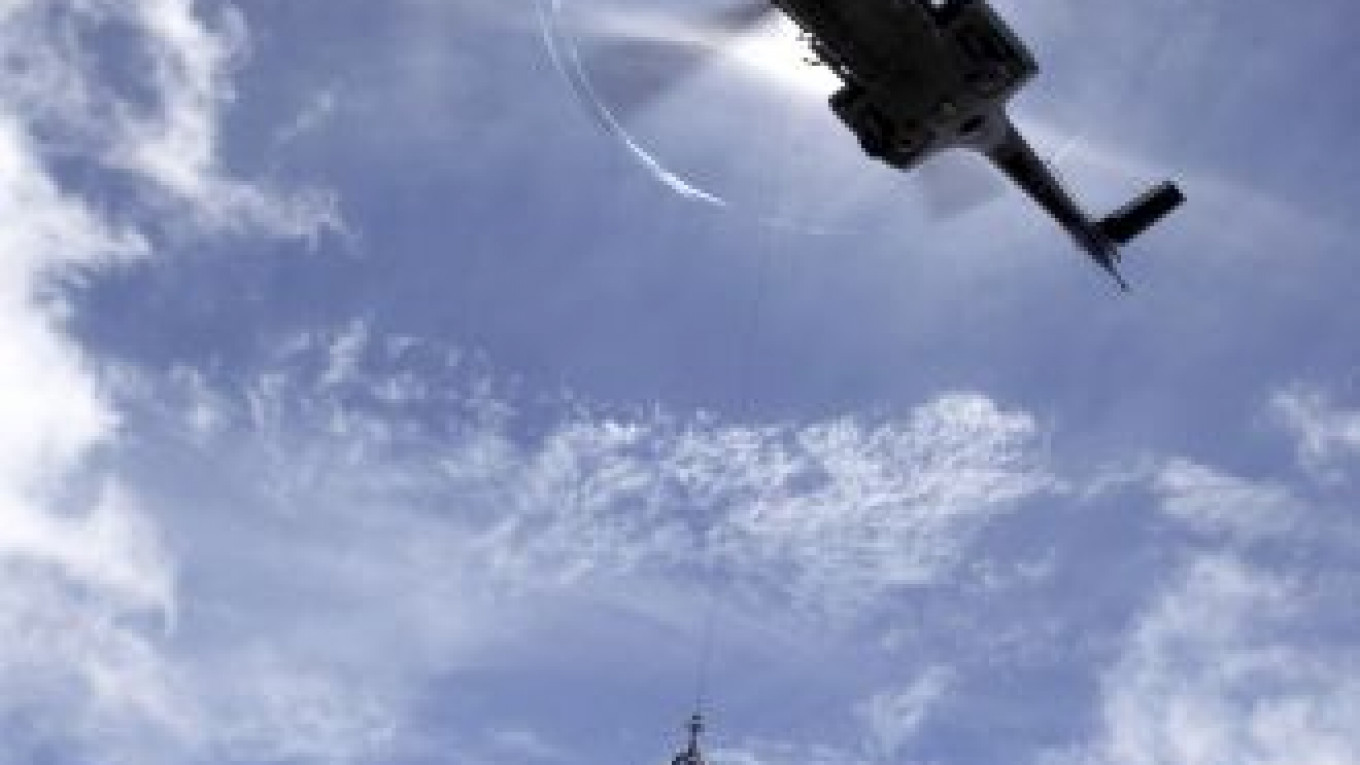JAKARTA, Indonesia — Indonesian special forces traversed the sheer slope of a volcano Monday after spotting what appeared to be the flight data recorder of a new Superjet that crashed during a demonstration flight for potential buyers.
It's not clear what caused the Sukhoi Superjet 100 to roar into Mount Salak at 800 kilometers per hour last week. All 45 people aboard are presumed dead, and helicopters have been ferrying the remains to Jakarta, the capital, for identification.
Search teams say they spotted what is believed to be the combined voice-and-data recorder, also known as the black box, peeking from the wreckage at the bottom of a 500-meter ravine, said Tatang Kurniadi, who heads the National Transportation Safety Commission.
"We are really hoping they'll reach it sometime today," he said.
The Superjet — Russia's first new model of passenger jet since the fall of the Soviet Union — was in Indonesia as part of a six-nation tour of Asia aimed at getting new customers.
Soon after takeoff from a Jakarta airport, the pilot was granted permission to drop from 3,000 meters to 1,800 meters, said Mulya Abdi, general manager of Air Traffic Control in Jakarta.
The plane was 11 kilometers north of Mount Salak at the time, an area considered outside the danger zone around the notoriously perilous volcano, he said.
But it dropped off the radar immediately after, Abdi said, and then slammed into the jagged, mist-shrouded mountain.
A ground proximity warning system should have displayed positions and heights of the mountain and other obstructions on a screen in the cockpit, Indonesian aviation consultant Ruth Simatupang said, but it's possible that data about the terrain in that area had not been properly uploaded.
"Something's obviously wrong here," Simatupang said.
Patrick Smith, an American airline pilot and aviation author, said it's possible too that the equipment was not installed or for some reason was not turned on.
"But at this juncture, we have no idea what was going on up there," he said. "It's too early to try and pinpoint a cause."
There also was no sign after the disaster of the plane's emergency locator, which should have transmitted signals on various radio frequencies when it slammed into the cliff.
That slowed efforts to locate the wreckage.
A Message from The Moscow Times:
Dear readers,
We are facing unprecedented challenges. Russia's Prosecutor General's Office has designated The Moscow Times as an "undesirable" organization, criminalizing our work and putting our staff at risk of prosecution. This follows our earlier unjust labeling as a "foreign agent."
These actions are direct attempts to silence independent journalism in Russia. The authorities claim our work "discredits the decisions of the Russian leadership." We see things differently: we strive to provide accurate, unbiased reporting on Russia.
We, the journalists of The Moscow Times, refuse to be silenced. But to continue our work, we need your help.
Your support, no matter how small, makes a world of difference. If you can, please support us monthly starting from just $2. It's quick to set up, and every contribution makes a significant impact.
By supporting The Moscow Times, you're defending open, independent journalism in the face of repression. Thank you for standing with us.
Remind me later.






